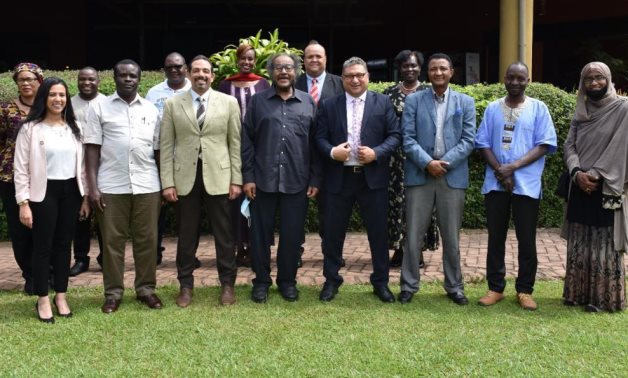
African civil society representatives and figures from nine African countries attend the “Nile for Peace” conference – Press photo
CAIRO – 12 April 2021: African civil society representatives and figures from nine African countries, including Egypt, Sudan and Ethiopia have signed a document recommending the postponement of the second phase of the Renaissance Dam filling scheduled for July.
Rounds of negotiations among Egypt, Sudan and Ethiopia on the Grand Ethiopian Renaissance Dam (GERD) have reached a deadlock several times with Egypt blaming the failure on Ethiopia’s intransigence.
Egypt and Sudan insist that a legally binding agreement on the filling and operation of the dam should be reached before Ethiopia implements the second phase of dam filling.

Egypt’s Maat for Peace, Development and Human Rights attended the conference. The representatives came from countries including Uganda, Kenya, Tanzania, DR Congo, Burundi and Morocco.
The document called on the Egyptian government to participate in the sustainable development activities in Ethiopia. Maat says all the participants signed the document.
It also called on the international community to contribute to compensating Ethiopia for any harm as a result of the adjournment of the dam filling.
The document urged formulating a legal agreement that ensures no harm is caused to any of the three countries.

Participants in the conference suggested that a long-term strategic plan is crystalized to prevent any possible dispute on rivers in the African continent.
They also proposed putting a short-term strategy to communicate with the three countries involved in the dam dispute and other concerned countries to brief them on the articles of the document.,
Chairman of Maat Ayman Okeil said this document is a strong foundation that the African civil society can build on.
The document can lead to inviting governments to engage in peaceful negotiations that are based on good faith rather than dispute, Okeil added.
Okeil said the document, the first of its kind on GERD over the past 11 years, establishes the basis for a fair solution to GERD dispute, which avoids any harm.
He noted that the document is not limited on resolving the GERD dispute but also seeks to stop any probable conflict on rivers in Africa in the future.

Comments
Leave a Comment